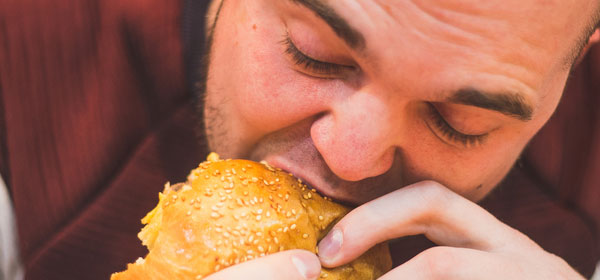Imagine being a flight attendant trying to stay healthy and maintain the weight and physical fitness required to do his or her job.
Then recall the last time you flew and the foods you craved on board. Yep, you probably remember wanting salty food or food with a real flavour kick.
That’s because up in the air your tastebuds change, and you crave foods with ‘umami’ or savoury taste. That is, high altitude and the pressure that’s unique to flying changes the way you taste food, so your cravings adjust to match your taste.
So, for a flight attendant, craving salty foods, sauces and anything with extra flavour usually spells trouble for the waistline and the old ticker.
Here’s what they know about food that you probably don’t.
Engine noise messes with your tastebuds
Cabin pressure and altitude aren’t the only factors that deaden your tastebuds. A Cornell University study found that airplane noise also dulled sweetness, making savoury foods taste more intense.
Why your food is often saucy
You’ll often find that your meal comes as a stew or with some kind of sauce. It’s not just for flavour. Low humidity at high altitudes has a tendency to dry out your food, hence it’s served swimming in sauce.
You don’t have to eat what you’re served
Contrary to popular belief, you don’t necessarily have to eat the meal you’re served. Most airlines will have a stock of different meals to suit all types of tastes and dietary requirements. If you ask nicely, your attendant will most likely let you know what else is on the menu.
Your pilot won’t eat the same meal as the co-pilot
Call it safety or paranoia, but the pilot and co-pilot always eat different meals. It’s so you don’t have the old Flying High routine happen on your flight. You know, when the whole plane comes down with terrible debilitating food poisoning, and the one alcoholic passenger who didn’t eat has to land the plane?
What do you think of airplane food? Is it as bad as everyone makes it out to be, or part of the experience? Is there an airline fare that you prefer?

